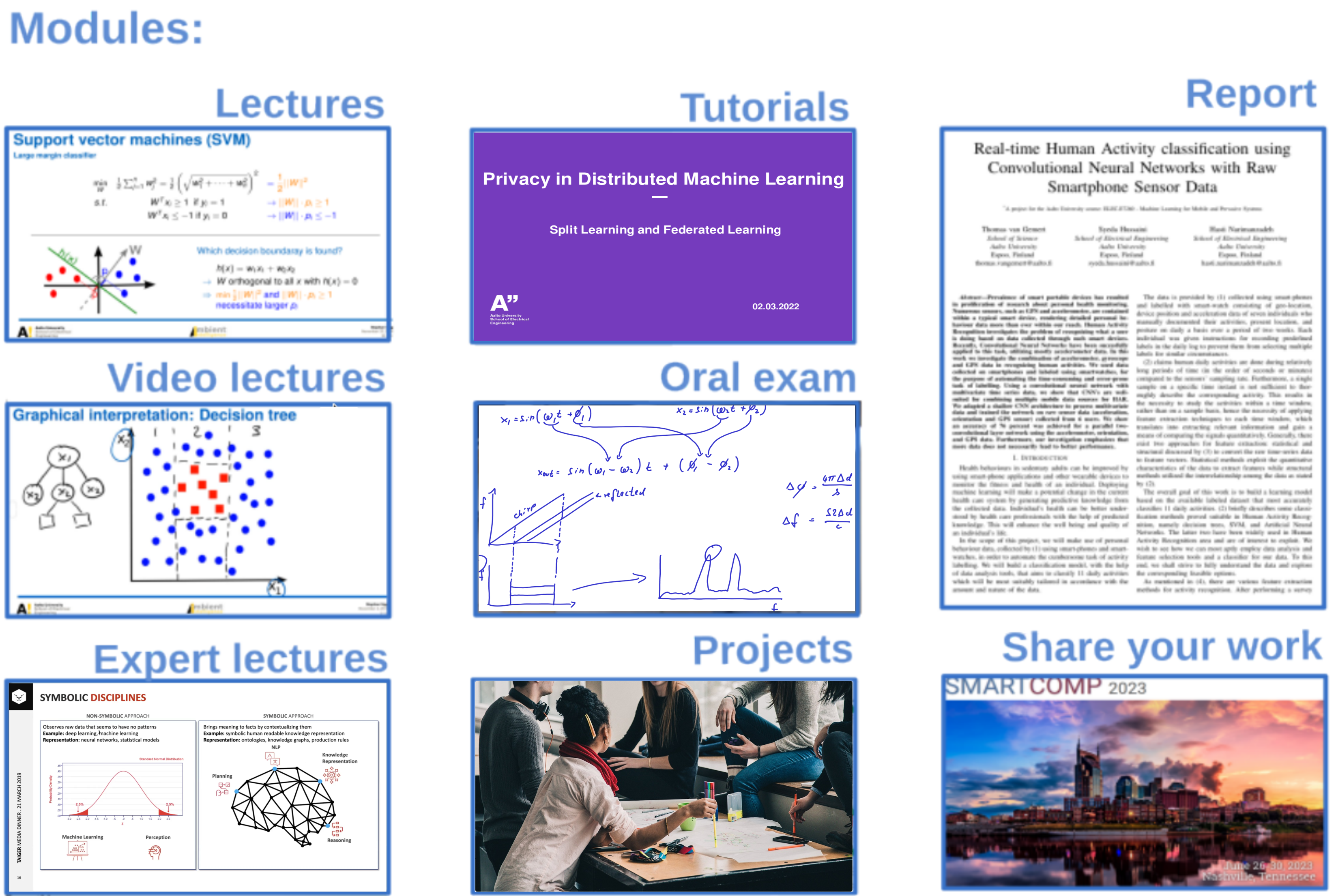ELEC-E7261 - Ambient Intelligence D, Lecture, 10.1.2024-10.4.2024
This course space end date is set to 10.04.2024 Search Courses: ELEC-E7261
Topic outline
-
The lecture will be conducted both in-person (T6 - A136) and streamed in zoom (https://aalto.zoom.us/j/62964718561).
A non-edited recording is made available after the lecture (in case of technical problems, the quality of the recording and even whether it will be available can not be guaranteed (best effort))
Ambient intelligence (AmI) refers to environments which are responsive to interaction and sensitive to the presence of people. The intention is to enable people, devices and environments to work together in concert to achieve everyday life tasks or activities intuitively by using information and intelligence hidden in the network connecting these devices. It is expected that, as devices grow smaller, more connected, and more integrated with the environment, the technological framework behind them will disappear from the perception of the people in these environments with which they intuitively interact.
AmI covers aspects of Distributed and Wearable Computing, Distributed algorithms, Human sensing, Pervasive Computing, Ubiquitous Computing, Contextual Awareness, Human-Computer Interaction, Distributed and embedded Systems.
The lecture will introduce basic techniques and domains in Ambient Intelligence from an algorithmic perspective. Particularly, the topics may cover
Radio Sensing Usable Security Ethics - The wireless radio channel
- RF sensing and localization
- Error correcting codes
- Fuzzy cryptography
- Ethics
- Gender
Audio Sensing Feature Engineering and learning Applications - Audio fingerprinting
- Sensing with audio
- Training and learning
- Useful concepts in machine learning
(Transformer, style-transfer, noise removal, etc.)
- Smart buildings
- Energy
- Health
Distributed Systems Constrained devices - Consistency
- Fault tolerance
- Synchronization
- Naming
- Internet of Things
- Backscatter communication
- Security
- Computation offloading
Organization
The lecture has a modular structure and foster hands-on experience. Modules can be selected in any combination(*) (max. 8 credits(**)). Credits are granted according to the completion of modules.
Modules can be selected in any combination(*) (max. 8 credits(**)). Credits are granted according to the completion of modules.- Video lectures (0 cr): Video lectures are provided for some topics to further the learning of the topic.
- Lectures (1 cr): Physical attendance and active participation in at least 10 contact teaching sessions
- Oral exam (2cr, graded): Individual technical discussion (20 minutes) on the topics taught in the class
- Small oral exam (1cr, graded): Individual technical discussion (10 minutes) on 50% of the topics taught in the class (selected by the student)
- Tutorials (2cr, graded): Preparation, training and presentation in front of the class of an in-depth tutorial on a specialized theme
- Report (2cr, graded): Scientific report about the results achieved in the project (After completion of the project - availability conditioned on quality of results).
- Projects (3cr, graded): Project work in teams on a research or industry-relevant topic/data. Status reports and final presentation in form of a poster.
(*) small oral exam can not be combined with the oral exam;(**) credits for the report are in addition
